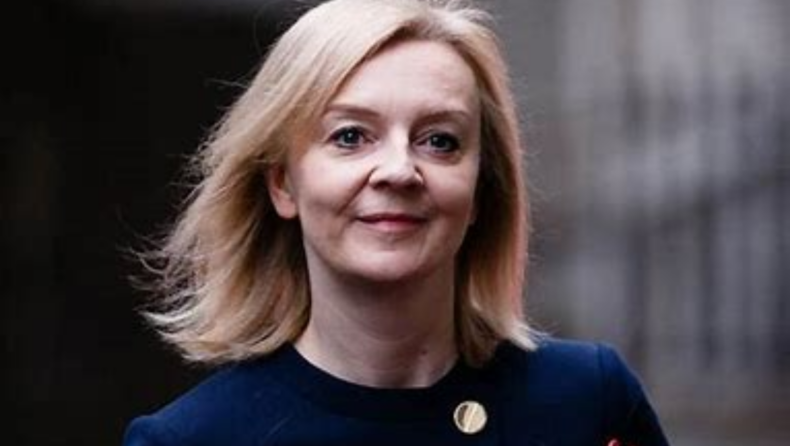Although, UK Prime Minister Liz Truss has promised to lead the Conservative Party into the upcoming election, which is scheduled for two years from now, many are sceptical if she will continue to do so.

Photo by REUTERS/Toby Melville/Pool
After abandoning her massive tax-cutting plan, British Prime Minister Liz Truss warned of difficult times ahead. Further, she also insisted she would continue to work to strengthen the economy, refusing calls for her resignation.After weeks of attributing the selling of government bonds and the pound to “global headwinds”.
Truss apologised on Monday, for going “too far and too soon” with her bold economic strategy to jolt Britain out of years of sluggish development.It was unclear whether the apology would put an end to a burgeoning uprising inside her Conservative Party, as a few legislators had already called for Truss to resign six weeks after taking office.
Truss has vowed to continue fighting and informed her top ministers that the people should be aware that difficult times lay ahead.More than half of respondents in a recent YouGov poll, including Conservative Party members who endorsed her for prime minister, said she should step down.
A third wanted Boris Johnson, her predecessor, to come back.Truss’ “mini-budget” of September 23, caused the markets to crash. Also, even her finance minister Jeremy Hunt shredded her plans on Monday, the markets are still under pressure.Truss said on the BBC late on Monday, “I do want to accept responsibility and express sorry for the mistakes that have been made”.
I intended to take action to reduce high taxes and aid people with their energy bills, but we moved too quickly. Although the declaration was greeted by a laugh, Truss declared that she was “sticking around” and that she would lead the Conservatives into the upcoming election, which is scheduled for around two years from now.
Truss remained silent in the chamber earlier on Monday as Hunt scorned the idea she had floated a little, over a month earlier. That plan had plunged the bond market to such an extent that the Bank of England had to step in to prevent pension funds from collapsing.
‘HONEST’
Some members of the party had faith in the prime minister’s ability to continue fighting after seeing her humiliated in front of lawmakers.”Truss, his employer, could not afford to make any more blunders,” declared James Heappey, an army minister.
On Tuesday, Truss addressed her lawmakers who supported Brexit and pledged to resolve the contentious rules governing trade with Northern Ireland. She also emphasised that she was still a low-tax conservative and would move more slowly toward achieving these goals.
One of the attendees claimed that in contrast to other wings of the celebration, she received a warm response.The administration has requested that any attempts to remove her be postponed, until after it releases its medium-term fiscal plan, on October 31.

Truss was elected by Conservative party members, not the general voter, on a platform of cutting taxes and regulations to boost the economy, a strategy decided by opponents as a return to “trickle-down” economics of the 1980s.Markets, however, reacted so violently that borrowing costs shot up, lenders withdrew their mortgage offers, and pension funds went into meltdown.
Michael O’Leary, CEO of Ryanair (RYA.I), compared Britain’s economic predicament to a “car catastrophe” and attributed it to the country’s 2016 referendum to leave the European Union.
SPENDING SQUEEZE
Hunt may now need to make more public spending cutbacks than the government would have if Truss hadn’t unveiled her economic strategy at a time of skyrocketing inflation. This is because Britain’s economic reputation has been destroyed.
Despite prior promises, the government could not yet make assurances in specific policy areas, according to a representative for Truss. However, it was instead concentrated on safeguarding the most defenceless. He claimed that Truss remained true to her promise to boost defence spending, by 2030.
After 10 years of successive Conservative governments slashing departmental budgets, Torsten Bell, the chairman of the think tank Resolution Foundation, suggested that the government may need to cut public spending by about 30 billion pounds ($34 billion). This would be a very difficult political undertaking.
Truss’s massive, two-year energy support package, which Hunt indicated will now continue until April before being reassessed and was projected to cost well over 100 billion pounds, is one area of spending that has already been cut.
($1 = 0.8807 pounds)
Read more: Truss promises to steer Britain through the Tumultuous Time












